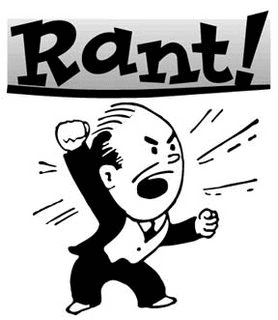 The comment thread of this otherwise humdrum book review has gone viral in just a few days. Scroll down to the comments, where the author of the book being reviewed, Jacquelin Howett, responds to the reviews criticisms of her book.
The comment thread of this otherwise humdrum book review has gone viral in just a few days. Scroll down to the comments, where the author of the book being reviewed, Jacquelin Howett, responds to the reviews criticisms of her book.
The reviewer actually gives pretty high praise to the story in the novel. His criticisms center on numerous errors in grammar, sentence structure, and spelling throughout the advance copy he was sent to review. The very first comment is from Jacquelin Howett, the author, objecting to the reviewers opinion and (rather caustically) disputing whether he had looked at the right copy of the book.
If you can stand reading further, it just gets worse and worse. Before very long the author manages to prove the reviewer’s critique by generously sprinkling typos and malapropisms throughout her comments. But her downward spiral toward disaster begins even sooner. After her rather impolite opening comment, she proceeds to spam the blogger’s comment thread with copied-and-pasted random reviews from her book’s Amazon page. Next, she calls the reviewer an outright liar, and accuses him of planting anonymous comments against her in his own blog.
I’ll leave you to read the rest for yourself, if you can stomach it. The comment thread is at over 300 comments as of this writing, and Howett by now has managed to dig herself a social media disaster hole that much be approaching the center of the earth.
Reading this cautionary tale, the lessons for anyone representing themselves, a brand, a cause, or an organization ought to be obvious. But let me spell out a few just in case:
- When you encounter criticism of your brand or product online, stop and consider first whether it is worthwhile or even appropriate to respond. In the case at hand, it is generally considered bad form for authors to respond directly to reviews.
- Consider whether a private response might be best. The author in our example thought that the reviewer might have based his review on the wrong copy of her book. That could have been cleared up through an email, rather than in public.
- If you do choose to respond, remain polite no matter what. Even if you are correct in your rebuttal, you will quickly lose the audience’s approval if you appear even slightly bully-ish or mean-spirited.
- Always remember in social media responses that the most important recipient of your comments is not the critic, but his or her larger audience. Always write your response as if you were speaking to your critic on the stage of a large hall full of people who will vote on your performance. Because you are, and they will.
- Politely correct the mis-statement of facts, or offer to set things right if your brand is in error, and let the rest go. Do not be pulled into a public “he-said/she-said” debate, by either the original critic or his readers.
- If all else fails, simply thank the critic for her opinion, and let it go. The broader audience watching is far more likely to remember your attitude than the actual problem.
What have you learned in dealing with critics and complaints online? What other pointers for such communication would you add?
Postscript: The ramifications of this author’s social media faux pas are already becoming evident. While at this writing a Google search for “Jacqueline Howett” still has a front-page filled with her own blog, Facebook page, Amazon book pages, and nice interviews, limiting the search to the past 24-hours changes the picture considerably. Now the first page is filled with almost all links and references to the review thread we’ve been discussing here. Undoubtedly Ms. Howett’s SEO is shot for some time to come.








